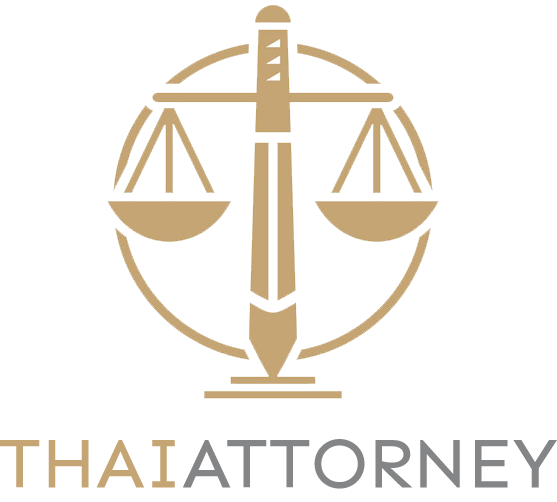Escrow Accounts in Thailand. In Thailand, where cross-border investments, real estate deals, and high-value transactions are common, escrow accounts serve as a critical financial tool to mitigate risk. Escrow ensures that funds are held securely by a neutral third party until all contractual conditions are met, protecting both buyers and sellers.
This guide provides an in-depth analysis of escrow services in Thailand, covering legal frameworks, operational mechanics, common use cases, and key considerations for businesses and individuals.
1. What is an Escrow Account?
An escrow account is a temporary holding account managed by a licensed third party (escrow agent) that safeguards funds or assets until predefined contractual obligations are fulfilled.
Key Characteristics of Escrow in Thailand:
- Neutral intermediary (bank, law firm, or licensed escrow provider).
- Legally binding agreement outlining release conditions.
- Funds remain frozen until all terms are satisfied.
- Commonly used in real estate, M&A, e-commerce, and international trade.
2. Legal Framework Governing Escrow in Thailand
Thailand does not have a dedicated Escrow Act, but escrow services operate under:
A. Contract Law (Sections 364-365, Thai Civil and Commercial Code)
- Escrow agreements are enforceable as contracts.
- Parties must define clear release conditions (e.g., transfer of property title, delivery of goods).
B. Bank of Thailand (BOT) Regulations
- Commercial banks (e.g., Bangkok Bank, Kasikornbank) offer escrow services under BOT oversight.
- Non-bank escrow providers must comply with Anti-Money Laundering (AML) laws.
C. Land Code (for Real Estate Transactions)
- Escrow is not mandatory but highly recommended for property purchases.
- Developers selling condos to foreigners often use escrow to comply with Foreign Ownership Act requirements.
3. How Escrow Works in Thailand: Step-by-Step Process
Step 1: Agreement Between Parties
- Buyer and seller draft a contract specifying:
- Escrow agent (bank or licensed provider).
- Release conditions (e.g., successful title transfer, inspection approval).
- Dispute resolution mechanism.
Step 2: Funding the Escrow Account
- Buyer deposits funds into the escrow account (usually a Thai baht-denominated account).
- Escrow agent verifies the deposit and notifies the seller.
Step 3: Fulfillment of Conditions
- Seller must meet obligations (e.g., deliver goods, transfer property deeds).
- Escrow agent validates compliance (may require notarized documents).
Step 4: Release or Refund
- If conditions are met → funds released to the seller.
- If terms are breached → funds returned to the buyer.
Step 5: Account Closure
- Escrow agent issues a transaction completion report.
- Fees (typically 0.5–2% of transaction value) are deducted.
4. Types of Escrow Services in Thailand
A. Real Estate Escrow
- Purpose: Protect buyers in off-plan condo purchases or land deals.
- How it works: Funds are released only after:
- Title deed transfer.
- Completion of construction (for pre-sale condos).
- Providers: Banks (e.g., Siam Commercial Bank), law firms, developers with escrow facilities.
B. Business & M&A Escrow
- Purpose: Secure mergers, acquisitions, or shareholder agreements.
- Common uses:
- Holding earn-out payments post-acquisition.
- Ensuring intellectual property transfers.
- Providers: International escrow firms (e.g., EscrowTech, DBS Thailand).
C. E-Commerce & Freelance Escrow
- Purpose: Prevent fraud in online transactions.
- Platforms: Some Thai marketplaces (e.g., Kaidee) integrate escrow for high-value items.
D. Litigation Escrow
- Purpose: Hold disputed funds during legal proceedings.
- Example: Court-ordered escrow for asset seizures.
5. Key Players in Thailand’s Escrow Market
A. Banks Offering Escrow Services
- Bangkok Bank – For real estate and corporate transactions.
- Kasikornbank (KBank) – Supports cross-border trade escrow.
- Siam Commercial Bank (SCB) – Specializes in developer escrow for condos.
B. Licensed Independent Escrow Providers
- DD Property Escrow (for real estate).
- Thailand Escrow Services Co., Ltd. (for SMEs).
- International firms (e.g., TMF Group, Vistra).
C. Law Firms with Escrow Management
- Baker McKenzie Thailand – Handles complex M&A escrow.
- Tilleke & Gibbins – Manages litigation-related escrow.
6. Critical Considerations When Using Escrow in Thailand
A. Escrow Agent Credentials
- Verify the agent’s license (if a non-bank provider).
- Check for BOT or SEC registration (for financial escrow).
B. Fees & Hidden Costs
- Setup fee: 5,000–20,000 THB.
- Annual maintenance fee: 0.1–0.5% of held funds.
- Currency conversion costs (for foreign-denominated escrow).
C. Tax Implications
- Escrowed funds are not taxable until released.
- Withholding tax may apply to interest earned in escrow.
D. Dispute Resolution
- Contracts should specify:
- Arbitration (e.g., Thailand Arbitration Center).
- Jurisdiction (Thai courts often favored).
7. Risks & Limitations of Escrow in Thailand
- No absolute fraud protection (e.g., fake escrow agents).
- Delays if release conditions are ambiguous.
- Limited recourse if the escrow agent becomes insolvent.
8. Case Study: Escrow in a Condo Purchase
Scenario: A foreigner buys a 10M THB off-plan condo in Bangkok.
- Escrow opened with SCB (developer’s designated bank).
- 20% deposit paid into escrow; remaining 80% upon completion.
- Developer fails to finish construction on time → buyer recovers funds via escrow.
9. Conclusion
Escrow accounts in Thailand provide a legally robust way to secure high-stakes transactions, particularly in real estate and M&A. While banks dominate the market, independent providers offer niche solutions. Parties must draft clear contracts, vet escrow agents, and understand tax/legal nuances to maximize protection.

